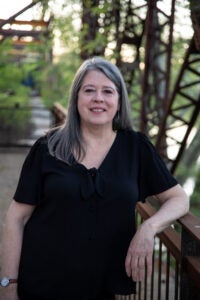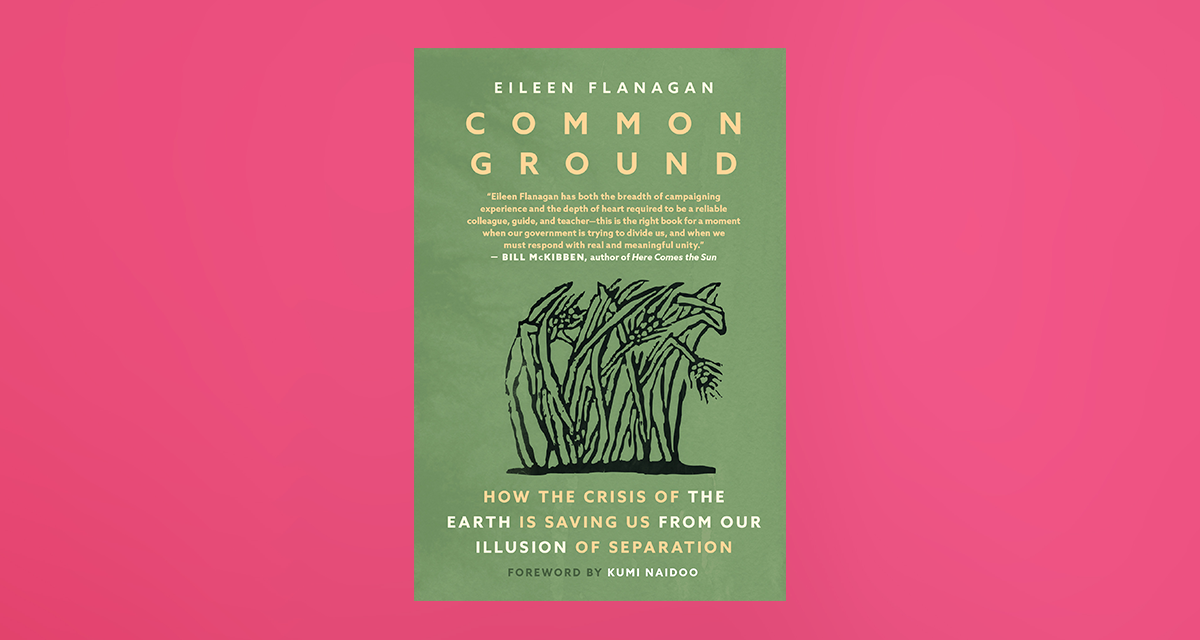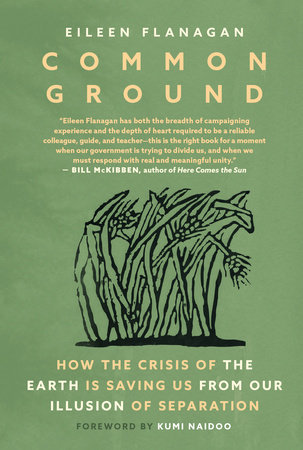Dear Reader,
With heat waves, wildfires, storms, and floods becoming ever more deadly, the urgency of climate action is increasingly understood. Unfortunately, people are unsure what to do beyond choosing a more fuel-efficient vehicle or other options that are out of reach for most college students. When faced with the need to transform our systems, students may feel especially overwhelmed at a time when the federal government is gutting programs intended to address the crisis. I wrote Common Ground: How the Crisis of the Earth is Saving Us from Our Illusion of Separation to share what I was learning about how bold coalitions can counter the power of large corporations.
After a decade of teaching on the university level, I left my job in 2011 to focus on climate activism, alarmed by all I was learning about the challenges my students and children would inherit. As part of a campaign that stopped a pipeline, I got arrested for the first time at age fifty. In subsequent years, I played key leadership roles in three climate campaigns, including two that involved cross-racial organizing. Curious how others were doing this work, I interviewed people from diverse communities to learn what helped communities that were able to thwart fossil fuel expansion.
The stories in Common Ground puncture what many spiritual teachers call “the illusion of separation” at the root of our interlocking environmental crises. On one level, the illusion of separation is the fallacy that humans can harm the Earth without harming ourselves. This view is challenged by an Ojibwe woman who is arrested for praying over the narrow headwaters of the Mississippi River. She sings to the water in defiance of the company preparing to install a pipeline that will endanger local fish and muskrat, as well as the 20 million people downriver whose drinking water is pulled from the Mississippi.
Racial and class segregation are other aspects of the illusion of separation, enabling a white community in Louisiana to insist that it is not affected by the chemical plant their Black neighbors are fighting a few blocks away. Likewise, executives of the Louisiana oil and gas industry meet at a New Orleans hotel that flooded during Hurricane Katrina, but they won’t even mention climate change—not until they are interrupted by grassroots activists who stride courageously to the stage in song. In India, I meet advocates who are working to help global climate negotiators understand the risks of climate change are both shared and unequal.
The inspiring stories in Common Ground bring to life many subjects taught at the university level, such as: how racial and class segregation influence who lives closest to polluting fossil fuel industries; how colonialism affects land use around the world; and how nonviolent tactics have the best track record for grassroots movements. As someone who taught college courses on South African history and racism in the United States, I know these stories will provoke rich classroom discussion. From an Irish American working-class family, I am open about the challenges of cross-racial organizing, including ingrained racism, unequal access to power, and disparate vulnerability to police violence.
Common Ground also shows that many people are realizing that we have a common stake in protecting the air, water, and climate—for ourselves and for future generations. Amid the chaos and conflict of our times, people are stretching their hands across old divides, within the United States and globally. More than technology or even elections, I argue that this germinating solidarity is humanity’s best hope for survival.
I believe this message is especially important for young people coming of age at a time when our divisions are so stark. I hope you will consider making Common Ground available to them.
With thanks,
Eileen Flanagan

© Rachael Warriner
EILEEN FLANAGAN brings a forty-year commitment to justice to her speaking, writing, and climate leadership. From a working-class Irish American family, she has confronted corporate CEOs, prayed in their lobbies, and been arrested alongside Indigenous water protectors, Black preachers, and fellow Quakers. Nationally known for helping people to make their activism more effective and spiritually-grounded, she shepherded a scrappy group of Quakers to pressure a $4 billion-a-year bank to stop financing mountaintop removal coal mining. She earned a BA from Duke and an MA from Yale as a first-generation college student, focusing on resistance to colonialism, which she taught on the college level. The Dalai Lama endorsed her award-winning book The Wisdom to Know the Difference, and some of the best-known climate activists in the world endorsed her memoir Renewable. She lives with her husband on Lenape land in Philadelphia.






